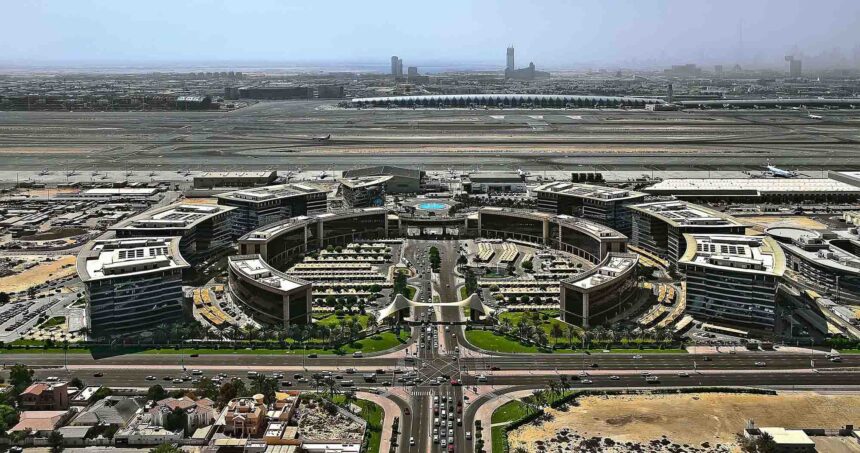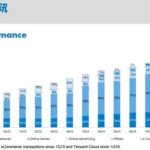GCC: In a time of heightened market volatility driven by US trade tariffs, the focus of infrastructure investment is shifting towards long-term opportunities rather than short-term market fluctuations. Historically the domain of large institutions, private infrastructure investment is now drawing the attention of smaller investors seeking stability and higher returns, making it a hedge against volatility.
A report by Ancala, a London-based infrastructure fund manager, reveals that in 2004, private infrastructure investment constituted just 1.4% of capital allocations. However, by 2024, this figure is expected to surge to 10.1%. The growth highlights a significant shift in investment strategies, with private infrastructure becoming a key asset class for family offices and smaller investors.
The potential for private infrastructure investment in the Gulf Cooperation Council (GCC) region is estimated to be in the trillions, according to Sami Neffati, Managing Partner for Infrastructure at Bahrain’s Investcorp. This opportunity is driven by the region’s growing need to diversify from its reliance on hydrocarbons, a goal accelerated by plans to attract global expertise and enhance transparency.
Also Read: Saudi Arabia Pledges $600 Billion Investment in US During Historic Defence, Energy, and Tech Deals
GCC Expansion of Infrastructure
Historically dominated by utilities, the infrastructure sector in the GCC has expanded over the last 25 years to encompass areas like education, healthcare, energy transition, decarbonization, and digitalization. This broadening of the opportunity set has attracted increased attention from global investors, with sovereign entities like Abu Dhabi’s ADQ acquiring a 49% stake in Australia’s Plenary Group in 2024. The region is also witnessing the establishment of significant greenfield infrastructure projects, worth $30 billion, marking the region as a hotspot for private infrastructure investment.
Several high-profile investments signal the rising importance of GCC infrastructure. Stonepeak, a global infrastructure investor based in New York, opened its Riyadh office in 2024, following the launch of its Abu Dhabi office earlier in the same year. Investors such as Union Bancaire Privee’s Bilel Belaid noted that the GCC region is gaining traction as a haven for infrastructure investment, citing its stability and governance.
The perception of low returns that once deterred regional investors from the infrastructure sector is shifting. As family offices and individual investors become more institutionalized, there has been a marked increase in allocations to infrastructure, particularly in Saudi Arabia and the UAE. Investcorp’s Neffati noted that investments in brownfield sites, which come with fewer risks, offer returns of around 9%. In contrast, greenfield projects, which require design, construction, and financing, can yield returns of 11-12%. A prominent example of private capital involvement is the Saudi gigaprojects, showcasing the region’s growing infrastructure opportunities.
Despite global market volatility, investors are focusing on long-term horizons. With infrastructure projects spanning 20-30 years, short-term fluctuations caused by trade tariffs and other uncertainties are of lesser concern. According to Belaid, yields in the GCC region tend to be higher than in the US and Europe, with returns of 9-13% compared to the 6-7% yields typically seen in Western markets. Moreover, the GCC’s currency, pegged to the dollar, mitigates risks commonly associated with investments in developing countries.
Read More: AI Investment Boom: US Tech Giants Reshape Gulf Innovation Era
As the GCC emerges as a global investment safe haven, investors are increasingly recognizing the region’s stable governance, robust economy, and strategic position as an attractive location for long-term investments. Ancala’s Ankur Ajmera highlighted a growing focus on middle-market infrastructure opportunities, particularly among sovereign wealth funds looking to strategically enter this space. The firm’s investments, including in the Scandinavian and German rail freight business Hector Rail, reflect the shift toward mid-cap opportunities within the infrastructure sector.
Conclusion
The GCC’s private infrastructure market is thriving as higher returns and stable governance position it as an attractive destination for global investors. As diversification away from hydrocarbons continues to shape the region’s investment landscape, infrastructure is proving to be a key asset class for both large and small investors looking for stable, long-term returns.
Follow 10X Times for more business news.






